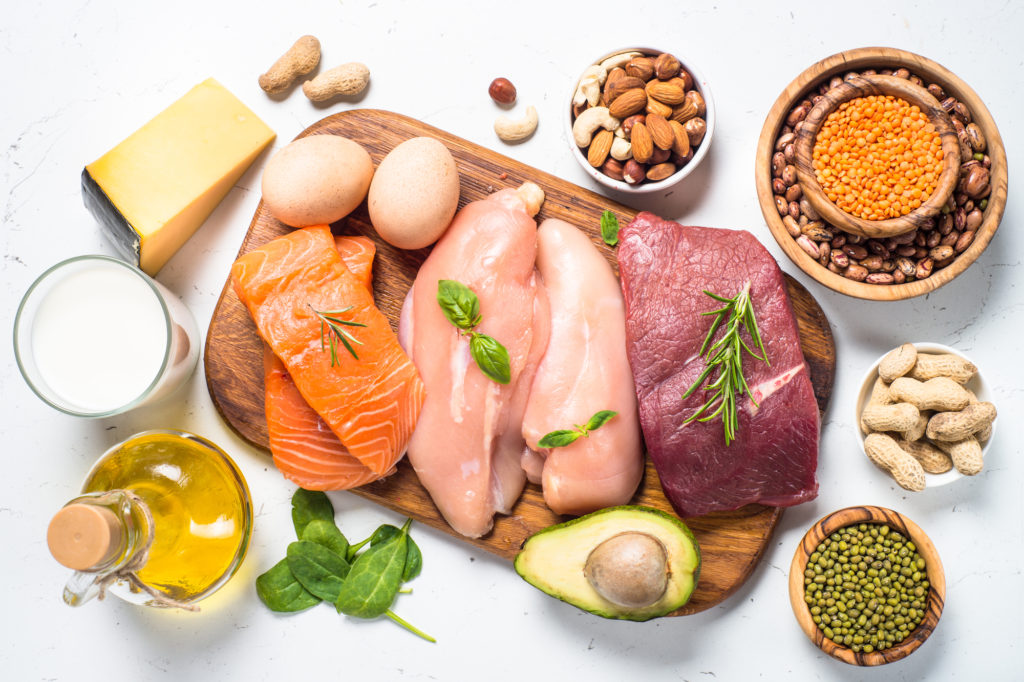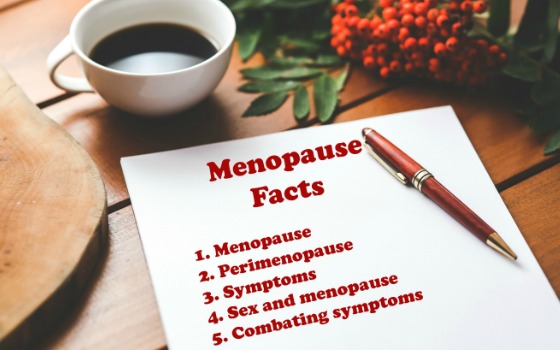Protein is an important component in a healthy body. As women get older, we tend to need more protein; our bodies could benefit greatly from higher amounts of it in our diets. Protein for midlife women is an important key nutrient in muscle health. With age also comes the risk of loss of muscle mass and strength, a condition known as sarcopenia.

Where Can We Find Protein Sources?
Meat and fish are protein-rich foods. These protein sources are complete because they contain adequate amounts of those all-important nine essential amino acids that the human body can’t synthesize (histidine, isoleucine, leucine, lysine, methionine, phenylalanine, threonine, tryptophan, and valine) but which we all need. Proteins are the body’s building blocks; they promote cell growth and repair. (It’s one reason you see people chugging protein drinks after a workout – muscle protein breaks down during exercising and repairs post-workout, while you rest.) However, meat and fish aren’t the be-all and end-all when it comes to protein for midlife women.
You can get your fill of these important macromolecules in foods like eggs, Brussels sprouts, broccoli and asparagus. However, these aren’t the only sources. But first . . .
How Much Protein Do You Need?
There are different schools of thought on this. In my research, I’ve found that there are quite a few factors which determine how much protein is needed per day: age, weight, caloric intake, activity level, pregnancy and lifestyle. However, the Recommended Daily Allowance (RDA) as reported by the U.S. Department of Agriculture and the Institute of Medicine is 46 grams for women and 56 grams for men.
There is such a thing as too much of a good thing. Just as not enough protein isn’t good for us, there are risks associated with consuming too much protein, including kidney disease, diarrhea, constipation, a higher risk of cardiovascular disease and more. Having said that, how much protein the body needs varies from person to person and how their body efficiently uses protein.1 The key is finding a good, healthy balance.
What Other Foods are Great Soures of Protein for Midlife Women?
Eggs, Brussels sprouts, broccoli, Greek yogurt and asparagus are just four food items that are great sources of protein and ones which you probably eat on a regular basis. However, your dining routine doesn’t have to be limited to these four. Below are 11 additional protein sources (grams / unit of measure) that you may want to consider to add variety to your meals in the absence of meat.
Chickpeas – 39g / 1 cup
Dry roasted peanuts – 35g / 1 cup
Kidney beans – 15g (boiled) / 1 cup
Lentils – 50g / 1 cup
Peanut butter – 8g / 2 tablespoons
Quinoa – 8g (cooked) / 1 cup
Seitan – 75g / 1 cup
Soybeans – 68g / 1 cup (raw); 29g (boiled); 61g (roasted)
Split peas, cooked – 16 g / 1 cup
Tempeh – 31g / 1 cup
Tofu – 20g / 1 cup
[1]Fetters, K. Aleisha (2018). Are You Getting Too Much Protein? Here’s Why It Matters. Retrieved from https://health.usnews.com/wellness/food/articles/2018-08-03/are-you-getting-too-much-protein-heres-why-it-matters





Wow, bring on the Humus!
Gotta love hummus! Thanks for kicking off the conversation, Haralee!
Terrific information. I didn’t know that we needed more now as we age. I’ve been trying to stick to vegetables & fruits more, but I need to rethink that!
Yes Rena, protein goes a long way in keeping our muscle tone. Just don’t overdo it with the protein! Thanks for joining the conversation.
This is so important for women in middle age. So is weight training. Thanks for posting.
It sure is, Lauren. Thanks for joining the conversation.
Yes, I am trying to keep up with my protein intake but each day comes news of another recall – now it salmon!!!!
If it’s not one thing, it’s another. Turn to chicken, eggs, quinoa, Greek yogurt, lean red meat, etc. Thanks for joining the conversation, Antionette!